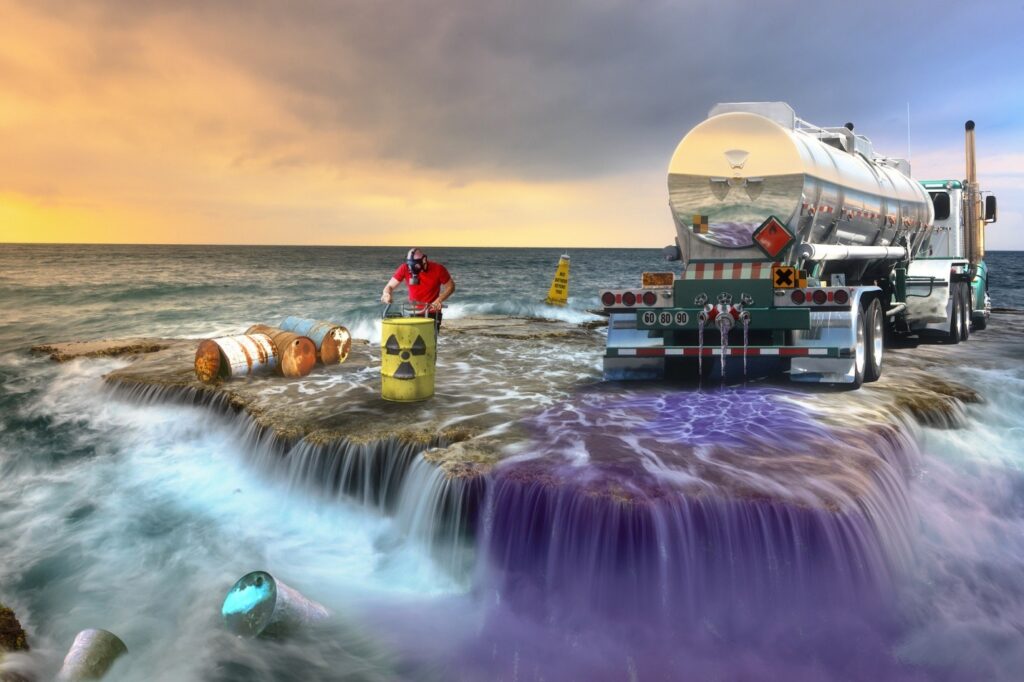Some Known Incorrect Statements About Reclaim Waste
Some Known Incorrect Statements About Reclaim Waste
Blog Article
Reclaim Waste for Beginners
Table of ContentsWhat Does Reclaim Waste Do?Reclaim Waste Fundamentals ExplainedHow Reclaim Waste can Save You Time, Stress, and Money.Unknown Facts About Reclaim WasteReclaim Waste - Questions
Residential sewage waste refers to the waste and items from a household septic storage tank. The proper monitoring and disposal of residential sewer waste require fluid waste to be moved to a sewer therapy plant where the appropriate techniques and equipment are applied to cleanse and dispose of waste.
Commercial waste often consists of possible threats, such as flammable materials or a blend of liquid and solid waste items, and calls for an advanced and in-depth disposal process. The disposal of industrial waste usually includes the filtering of waste before transport to make sure safe and appropriate disposal. Hazardous waste is created from results and drainage of industrial processes and manufacturing.
This type of waste can not utilize the very same sewer monitoring transportation or processes as septic or business fluids. The commercial waste monitoring process calls for the examination and testing of liquid waste before it goes through the disposal procedure (industrial wastewater treatment). Drainage waste is the fluid waste that comes from drainage and excess stormwater in highly booming areas or cities
Runoff waste can cause contamination and flooding otherwise dealt with appropriately. Discover much more concerning sewer cleansing and waste administration. Ensuring appropriate waste monitoring can prevent calamities and lower environmental harm. Both people in residential setups and experts in industrial or manufacturing markets can benefit from understanding the processes and regulations of liquid waste management.
Some Of Reclaim Waste
Get in touch with PROS Services today to discover our waste monitoring and disposal services and the correct ways to look after the liquid waste you create.
(https://www.blogtalkradio.com/reclaimwaste1)Do you understand what takes place to your water when you disengage, purge the commode or drain the washing equipment? No? Well, it deserves recognizing. This supposed 'wastewater' is not only an essential resource however, after treatment, will be launched to our land, rivers or the ocean. Utilized water from toilets, showers, bathrooms, kitchen sinks, washings and commercial procedures is known as wastewater.

water utilized to cool machinery or tidy plant and tools). Stormwater, a other type of wastewater, is drainage that streams from agricultural and metropolitan locations such as roofing systems, parks, yards, roads, paths and seamless gutters right into stormwater drains, after rainfall. Stormwater moves untreated directly to regional creeks or rivers, eventually getting to the sea.
8 Easy Facts About Reclaim Waste Explained
In Queensland, many wastewater is dealt with at sewer therapy plants. Wastewater is delivered from residential or commercial sites through a system of drains and pump terminals, referred to as sewerage reticulation, to a sewage treatment plant. City governments develop, keep and operate most sewer treatment plants. Operators are licensed under the Environmental Management Act 1994 to release cured wastewater at an appropriate ecological criterion right into waterways.
The Division of Natural Resources recommends regional governments about handling, operating and preserving sewerage systems and therapy plants. In unsewered locations, city governments may call for owners to install private or house sewer therapy systems to treat domestic wastewater from bathrooms, cooking areas, washrooms and laundries. The Department of Natural Resources authorizes making use of home systems when they are verified to be efficient.
Many stormwater gets no therapy. In some brand-new neighborhoods, therapy of some stormwater to remove clutter, sand and crushed rock has begun using gross toxin catches. Wastewater therapy takes place in four stages: Gets rid of strong matter. Larger solids, such as plastics and various other objects wrongly released to drains, are removed when wastewater is travelled through screens.
Wastewater after that flows right into large storage tanks where solids work out and are eliminated as sludge. Grease and scum are skimmed from the surface area. Utilizes little living microorganisms knows as micro-organisms to break down and remove staying dissolved wastes and great bits. Micro-organisms and wastes are integrated in the sludge. Eliminates nitrogen and phosphorus nutrients that could trigger algal blooms in our waterways and endanger water life.
10 Simple Techniques For Reclaim Waste
Nutrient elimination is not offered at all sewage treatment plants since it needs expensive specialist equipment. Clear fluid effluent created after therapy may still include disease-causing micro-organisms - liquid waste removal melbourne.

This generally suggests wastewater has to be dealt with or contaminants removed before it can be released to waterways. Most wastewater streams right into the sewage system. Under the Act, city governments carry out authorizations and permits for ecologically relevant tasks (Ages) involving wastewater launches that could have a local effect. The division administers authorizations and permits to ERAs including wastewater launches that may have a regional or statewide effect.
Facts About Reclaim Waste Revealed
Or else, examples are considered laboratory evaluation. Typically lots of tests are required to develop the levels of each of the different toxins such as oils, hefty steels and pesticides in water. Surveillance gives factual details concerning water high quality and can confirm that permit conditions are being satisfied. The info acquired through monitoring offers the basis for making water quality choices.
Report this page